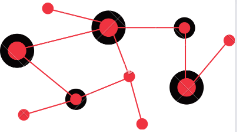NEWS!!!!
The scientific and organizing committee thank all those who came to Porto and enriched this conference with their participation.
We hope it has been an excellent opportunity for you to increase your network of scientific contacts.
. . . . . . . . . . . . . . . . . . . . . . . . . . . . . . . . . . . . . . . . . . . . . . . . . . . . . . . . . . . . . . . . .
In a context of solid globalisation and the emergence of new technologies, crime has evolved, adopting new forms of delinquency, taking place in different contexts, and involving the activity of criminals technically more gifted, up-to-date, and increasingly organised in a reticulated structure. In response to this trend, criminal investigation and academic research on criminal phenomena call for new methods and techniques.
The most recent advances in criminal data processing have been very significant, impacting how data are collected and organised and on methods and analysis techniques applied to produce helpful information for both academic and criminal investigations.
It is in this context that this event arises, bringing together researchers from Criminology and related areas, agents from criminal police bodies and other professionals from the criminal justice system, who will discuss the challenges that new technologies, new data analysis methods, and in particular the analysis of criminal networks, have raised in the development of academic knowledge and the practice of criminal investigation and in the justice system.
… …

